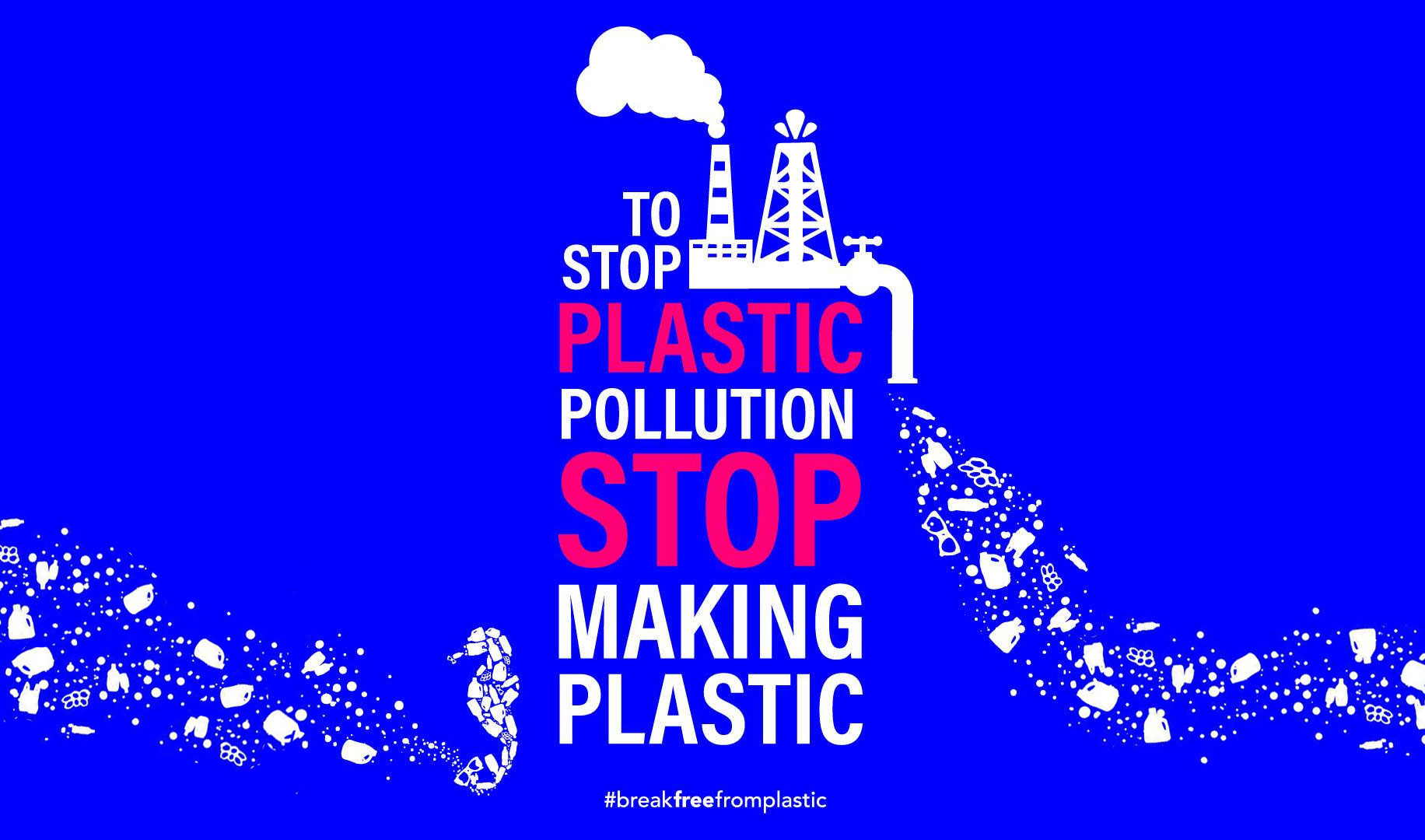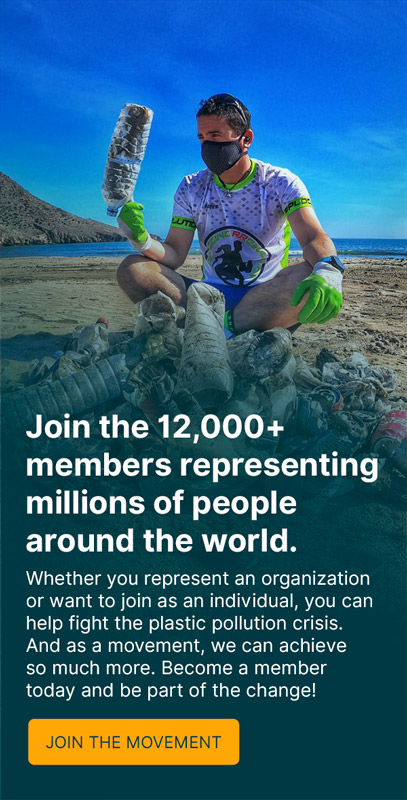September 24th, 2019
Senator Sheldon Whitehouse
717 Hart Senate Office Building
Washington, DC 20510
And
Senator Dan Sullivan
302 Hart Senate Office Building
Washington, DC 20510
Re: Opposition to the Save Our Seas 2.0 Act, Senate bill 1982, Senate bill 2260, Senate bill 2364, Senate bill 2372
Dear Senator Whitehouse and Senator Sullivan:
The undersigned are writing to oppose the “Save our Seas 2.0 Act”. While we appreciate your attention to the important issue of plastic pollution, this legislation does not provide a comprehensive approach to solving the growing problem of plastic pollution and certain provisions of the bill will make the problem worse.
We need Congress to pass legislation that reduces the generation of plastic, particularly single-use plastic packaging. This bill does not do that.
The public and a growing number of businesses are focused on the impacts of the entire lifecycle of plastic, from production, including fossil fuel extraction, to manufacturing, use, disposal – especially plastic incineration – and pollution in the environment. These impacts include significant and growing greenhouse gas emissions, toxic health impacts, plastic and microplastic pollution, degradation of water quality, damage to fish and wildlife, and the severe and too often unnoticed environmental justice impacts in communities where petrochemical facilities are sited. That is why hundreds of local governments, many in bi-partisan fashion, have adopted laws that ban or limit a range of plastic packaging such as plastic bags, polystyrene containers, plastic straws, balloons, plastic utensils and other single-use plastics. Beyond bans, we need a national law that reduces plastic generation, not just end-of-pipe approaches to manage plastic waste once it has been produced.
The primary focus of legislation addressing the plastic pollution crisis should focus on reducing the manufacturing and use of plastics – not attempts to clean it up after the fact. Your legislation directs a number of federal agencies to do studies, launches a Genius prize, and establishes a new Foundation housed at NOAA. While these efforts may have some positive impact, the bill ultimately approaches the issue as one of waste management, not overproduction of plastic, and risks further entrenching the systems that produce plastic rather than dislodging them. In particular, sections 305 (Study on repurposing plastic waste in infrastructure) and 306 (study on options to advance technologies for converting plastic waste to chemicals, feedstocks, and other useful products) are likely to expand markets for plastic waste which will then rely on a steady stream of plastic to stay viable. Many of these false solutions, such as incineration, waste-to-fuel, and pyrolysis approaches, are dangerous in their own right, and expanding their footprint on the American economy will only make it harder to phase out single-use and unnecessary plastic. We understand that the section of the bill dealing with incineration, gasification, pyrolysis of plastics has been removed from this bill but may be again added at a future date. We applaud it being removed and urge you to keep that section out of all future bills.
This is particularly concerning when considered alongside the enormous investments being made by the petrochemical industry in new facilities to produce ever more virgin plastic. According to the American Chemistry Council, over $204 billion in capital investment have been announced for 334 new or expanded facilities linked to US shale gas. Most of this investment is in facilities to produce plastic or plastic precursor chemicals. Industry plans to expand plastic production will overwhelm any efforts to strengthen the US recycling system.
This expansion is a climate and environmental justice crisis. The climate crisis cannot be solved without dealing with plastic production. A recent report calculated that, if trends in the plastic industry continue as planned, the plastic lifecycle could account for up to 13% of the global carbon budget just by 2050. Moreover, communities living close to facilities which produce and incinerate plastic, disproportionately low-income communities and communities of color, will be exposed to dangerous levels of air toxins while massive amounts of greenhouse gases are released into the atmosphere.
We the undersigned organizations request that you withdraw this bill or fundamentally change it so it focuses on reducing the generation of plastic, not the continued generation of plastic that inevitably damages the marine environment and then adds a new layer of problems from the air pollution at the gasification or incineration or pyrolysis or waste to fuel facilities that are not viable environmental or economic options.
The American people are actively working on the perils of plastic pollution and taking action at the local and state level. It would be a shame not to capitalize on the growing public interest in this issue and pass federal legislation that does not effectively address this problem.
We would be happy to discuss these concerns with you at your convenience. Please contact Judith Enck, founder of Beyond Plastics at 518.605.1770 or JudithEnck@Bennington.edu to arrange a time to discuss this matter.
Thank you for your consideration.
Sincerely,
-
- Judith Enck, Beyond Plastics, Bennington, Vermont
- Steven Feit, Center for International Environmental Law, Washington, DC
- Jackie Nuñez, The Last Plastic Straw, Santa Cruz, California
- Harith Wickrema, Island Green Living Association, St. John, Virgin Islands
- Young Grguras, Post-landfill Action Network, Pittsburgh, Pennsylvania
- Ellie Cohen, The Climate Center, Santa Rosa, California
- Elise Semonian, Town PLanner, San Anselmo, California
- Anna Cummins, The 5 Gyres Institute, Los Angeles, California
- Heather Trim, Zero Waste Washington, Seattle, Washington
- Stiv Wilson, Story of Stuff Project, Berkeley, California
- Leslie Tamminen, 7th Generation Advisors, Los Angeles, California
- Denise Patel, Global Alliance for Incinerator Alternatives, New York, New York
- Yvonne Taylor, Seneca Lake Guardian, a Waterkeeper Alliance Affiliate, Watkins Glen, New York
- Jon Phillips, Co-Chair, Keep-It-Greene, Catskill, New York
- Mark Lichtenstein, Embrace Impatience Associates, Mexico, New York
- Debby Lee Cohen, Cafeteria Culture, New York, New York
- Craig Williams, Kentucky Environmental Foundation, Berea, Kentucky
- Tricia Cortez, Rio Grande International Study Center, Laredo, Texas
- Christopher Chin, The Center for Oceanic Awareness, Research, and Education, Oakland, California
- Paul Burns, Vermont Public Interest Research Group, Montpelier, Vermont
- David Bezanson, Ph.D., 350, Silicon Valley, California
- Dianna Cohen, Plastic Pollution Coalition, Los Angeles, California
- Patricia Wood, Grassroots Environmental Education, Port Washington, New York
- KT Andresky, Breathe Free Detroit, Detroit, Michigan
- Bradley M. Campbell, Conservation Law Foundation, Boston, Massachusetts
- Miriam Gordon, UPSTREAM, San Francisco, California
- Theresa Landrum, Original United Citizens of Southwest Detroit, Detroit, Michigan
- Pamela Carter, 48217 Community and Environmental Health Organization, Detroit, Michigan
- Mary Buxton, 350, Silicon Valley, California
- Nicole Kemeny, 350, Silicon Valley, California
- Shilpi Chhotray, Break Free From Plastic, Oakland, California
- Sandra Steingraber, PhD, Concerned Health Professionals, New York, New York
- Robert Nuñez, Californians Against Waste, Sacramento, California
- Tracy Frisch, Clean Air Action Network, Glens Falls, New York
- Joanie Steinhaus, Turtle Island Restoration Network, Galveston, Texas
- Charlene Lemoine, Waukesha County Environmental Action League, Waukesha, Wisconsin
- Melissa Cooper Sargent, Ecology Center, Detroit, Michigan
- Lynn Hoffman, Eureka Recycling, Minneapolis, Minnesota



